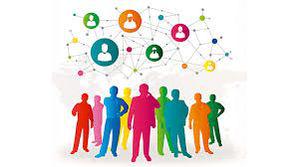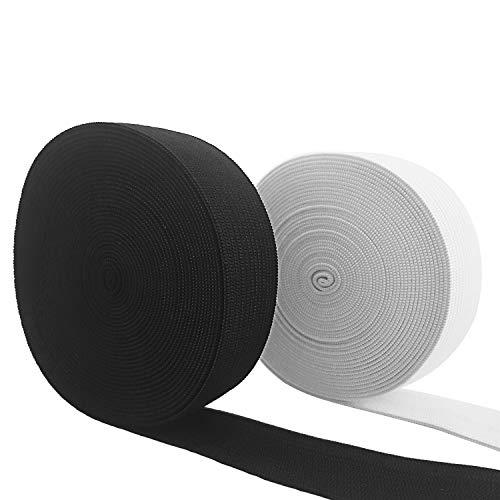The network society
Many do not assimilate the importance of the changes that occurred in these years in all spheres of life. Human beings had been experiencing the colossal transformation typical of the third industrial revolution, when it accelerated with the pandemic.
Politics depends above all on communication and cannot be analyzed with the tools we used until a few years ago. Especially in terms of the connection of people with each other, everything is radically new. Representative democracy is dying.
People naturally experience the transformations of the forms, contents and tools of the screen society, obtain a paraphernalia of physical and virtual objects, update themselves, obtain information, confuse it with training and give opinions with solvent ignorance about everything imaginable.
I was always fond of astronomy, mathematics and science. When I was a teenager, I used to ask bookstores in Quito to let me know if a book on those topics arrived so I could buy it.
I got about four or five a year, with some information about Mars and the solar system.
When I was a university student I traveled several times to the two cities where the largest bookstores in Hispanic America were located. In Buenos Aires there was El Ateneo on Florida Street, in Mexico Miguel Ángel de Quevedo's Gandhi, which is now a small place for sale of balances.
I stayed all day in those places to review texts of poetry, literature, philosophy, astronomy, religions and politics.
He then walked down Corrientes Avenue and Calle de los Donceles, where there were second-hand bookstores, managed by wise booksellers, who knew about authors and editions as old as they were new.
On some trips I dedicated myself to rummaging through mountains of amazing books, which in several cases were integrated into my library and I hardly got to see anything else from those cities.
Few years have passed. I still love my paper books, but they and I had to adapt to the new times and share life with electronic texts.
At first it was difficult to accept them, because I like to caress the covers, the pages, appreciate the texture of the paper. It is exciting to write annotations in the margins, it has a different charm than the e-book note.
I participate in the dizzying speed of the production of knowledge of the time. I subscribe to The New Yorker, The Economist, Newsweek, I frequently read the New York Times and The Washington Post, Veja, Noticias, Proceso, the main Argentine, Mexican, Spanish and Brazilian newspapers.
When I find an interesting book review, I buy it immediately and usually read it within a few weeks of its appearance.
When I am interested in what is happening in any country, I read the local press. It doesn't matter if it's published in any language, because if I'm interested in Iran and the article is in Farsi, the computer translates it automatically.
I avidly read the interviews Jorge Fontevechia does with intellectuals and personalities from the most diverse places. They provide new perspectives and allow you to think more freely.
The speed of technological, cultural and social progress is growing rapidly
But the passion for magazines, old books, and hard-to-find editions is indeclinable and is strengthened in the age of the Internet, thanks to tools like Mercado Libre.
This year I was able to obtain the first editions of Amor brujo, by Roberto Arlt; the Letter to the Powers, by Antonin Artaud, and Buenos Aires, daily life and alienation, by Juan José Sebreli.
I like the intense aesthetic experiences that are obtained by reading or listening to music in certain contexts. In some places on the Ecuadorian coast the sea roars in an overwhelming way. It is the ideal setting to read, in the middle of the night, screaming, A Season in Hell by Arthur Rimbaud: “I am of an inferior race for all eternity. Here I am on the Armorican beach. Cities can now be illuminated at night. My journey is done; I leave Europe. The sea air will burn my lungs; Remote climes will roast me.”
Dino Buzzati's texts smell like a forest, the Barnabo of the mountains, or The Secret of the Old Forest become magical when you read them in the middle of a eucalyptus forest.
But advanced technology allows you to experience new pleasures, such as sitting on the bench of a Quito colonial church and listening to the Angelis Mass, a monophonic masterpiece, at full volume, without disturbing anyone.
During the pandemic, the real dangers and my hypochondria almost paralyzed me. Accustomed to flying every month to give lectures, courses, attend seminars, I suddenly found myself secluded in the library-apartment where I have lived for more than thirty years.
Before, this same situation would have condemned me to ostracism.
However, I have never traveled as much as in this time of isolation. I was able to maintain permanent contact with academics, politicians and important figures from many countries. I followed in detail all the elections that seemed interesting to me, I participated in Zoom meetings with candidates, campaign teams and presidents.
So many years of teaching allow me to have a network of former students and friends in almost every country on the continent, who provide me with surveys and updated information.

On many occasions I was better informed than the candidates or political leaders themselves.
I was featured in the Pandora Papers, a list of the world's millionaires. They said that I was the owner of companies that had investments in North American mines and in Switzerland.
It seems that I was listed as a partner in two companies that never operated, founded twenty years ago by friends and relatives. I have never participated in company meetings, I lack time to do what makes me happy.
Since then I receive funny offers.
In the internet society, some companies get email addresses from potential customers and try to sell their products.
There are those who offer me cars with strange names.
I was never interested in cars, nor do I know anything about them. Two years ago I bought my last car, when I realized that the previous one, which lasted me more than twenty years, had a cassette player. It's a waste of time to send catalogs to sell high-end cars to someone who only distinguishes the height of the trucks.
I also receive emails with catalogs of jewelry and watches with exorbitant prices.
I have never set foot in a jewelry store, nor am I interested in buying a piece of exotic metal or glass. Neither are watches.
I have one that my family gave me when I was appointed chief of staff and two more that a famous Argentine television presenter, whom I admire, gave me when I went to her program. I like keeping memories, but wearing a watch would stress me out.
I'm not a potential customer to buy stuff I'm not interested in, but I'm sure to be on a list of tycoons. I hope that they offer me the possibility of traveling to the stratosphere, which is something that would interest me, although I may not be able to afford it.
The speed of change. The advancement of technology is accelerating all the time. According to Raymond Kurzweil, the law of accelerated returns establishes that there is an increase in the rate of technological, social and cultural progress, which produces increasingly rapid and profound changes. His speed grows exponentially every day.
Moore's law described a pattern of exponential growth in the complexity of integrated semiconductor circuits and also an exponential decline in their prices, making them available to more people.
Kurzweil extends this to all future technologies, beyond integrated circuits. He says that whenever a technological advance hits a barrier, a new technique appears that allows that obstacle to be overcome. The revolution we are experiencing invades all spheres of reality, it will lead to "technological changes so rapid and profound that they will mean a rupture in the fabric of human history" and we will reach the technological singularity around 2045.
In the 21st century we will see in a hundred years a progress equivalent to that of 20 thousand years
An analysis of the history of evolution shows that the speed of change grows exponentially, contrary to the "intuitive linear" view of common sense. In the 21st century we will not experience the progress of what would have been a hundred years, but rather that of more than 20 thousand years.
In a few decades, the intelligence of machines will surpass human intelligence, leading us to technological changes so fast and profound that they will mean a new leap in evolution.
In the history of evolution, the most complex forms of life evolve much faster than the simple ones, with increasingly shorter intervals for the emergence of new forms.
The time it took for complex beings to appear from red algae was vastly longer than the time it took for Homo sapiens to appear from the Cro-Magnon.
We now have the ability to efficiently design, intentionally, changes that replace the relatively blind mechanisms of selection for the efficiency of evolution, exponentially increasing the rate of transformation of humans and the objects they control.
At the same time that we change the world, we discover more efficient ways of communicating and learning, such as body language, the integrality of the message, numbers, written language, philosophy, the scientific method, we perfect the instruments of observation, the ability to computers to collect and process information.
Transformations in all fields are getting closer to each other.
In the space of sixty years, life in the industrialized world has changed beyond recognition, more than those born in the first half of the 20th century could imagine.
The speed of change will grow to unimaginable limits not only with the 5G internet, but also with quantum computing, which will boost the speed of computers.
*Professor at GWU. Member of the Argentine Political Club.
You may also like






![47 best antiage nutritive cream in 2022 [based on 326 reviews] 47 best antiage nutritive cream in 2022 [based on 326 reviews]](https://website-google-hk.oss-cn-hongkong.aliyuncs.com/drawing/article_results_6/2022/2/27/1918fc37c66ad30564173e69d9df88a0.jpeg)
